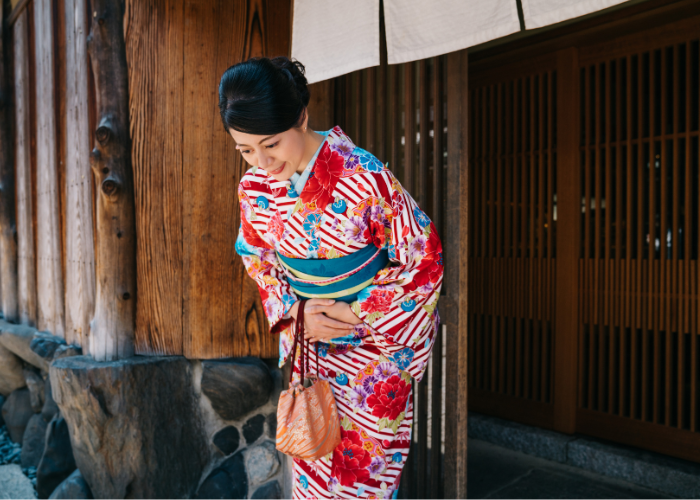Here are some key do’s and don’ts for Japan, which can help you navigate social etiquette and customs:

Do’s
- Do Bow When Greeting: Bowing is a common form of greeting in Japan. A slight bow is usually sufficient for most occasions.
- Do Remove Your Shoes: Always take off your shoes when entering someone’s home, some traditional inns, temples, and even some restaurants. Slippers are often provided.
- Do Be Punctual: Being on time is highly valued in Japan, whether for business meetings or social gatherings.
- Do Respect Personal Space: Japanese culture values personal space and privacy. Avoid touching people, even on the arm, unless you know them well.
- Do Use Both Hands: When giving or receiving something, especially business cards, use both hands as a sign of respect.
- Do Speak Softly: Keep your voice down in public places like trains and buses. Loud talking is considered rude.
- Do Follow Queuing Rules: Japanese people are very orderly and follow queuing rules strictly, whether waiting for a train, bus, or in a store.
- Do Use Chopsticks Properly: Learn the basic chopstick etiquette, such as not sticking chopsticks upright in rice, as this resembles a funeral ritual.
- Do Show Appreciation: Saying “thank you” (arigatou gozaimasu) is always appreciated. A small bow or nod can also convey gratitude.
- Do Use Cash: While credit cards are becoming more common, many places still prefer cash, especially smaller establishments.
Don’ts

- Don’t Tip: Tipping is not customary in Japan and can be considered rude. Good service is included in the price.
- Don’t Point: Pointing with your finger is considered impolite. Instead, use your whole hand to gesture.
- Don’t Talk on the Phone in Public Transport: It’s considered rude to talk on your phone in public transport. Texting is acceptable.
- Don’t Eat or Drink While Walking: It’s uncommon and considered impolite to eat or drink while walking. Finish your food or drink before continuing your journey.
- Don’t Blow Your Nose in Public: Blowing your nose in public is frowned upon. If necessary, do it discreetly or go to a restroom.
- Don’t Engage in Loud Public Displays of Affection: Holding hands is generally acceptable, but anything more than that is considered inappropriate.
- Don’t Leave Your Chopsticks Crossed: When placing chopsticks down, don’t leave them crossed or place them on top of your bowl. Use the provided chopstick rest if available.
- Don’t Pour Your Own Drink: When drinking in a social setting, it’s customary to pour drinks for others and let them pour yours.
- Don’t Enter a Bath or Hot Spring Without Washing First: When visiting an onsen (hot spring) or public bath, wash thoroughly before entering the communal bath.
- Don’t Be Overly Direct: Japanese communication tends to be indirect. Being too blunt or direct can be seen as rude.
Understanding and following these guidelines will help you show respect for Japanese culture and make your visit more enjoyable.
Leave a Reply